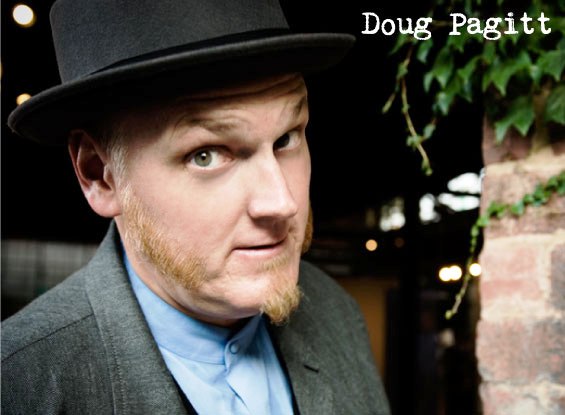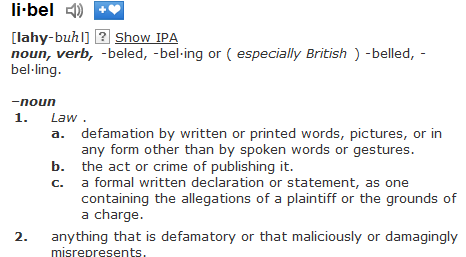DOUG PAGITT AND ALLEGED SLANDER
By Ken Silva pastor-teacher on Jan 3, 2011 in AM Missives, Current Issues, Emergence Christianity, Emergent Church, Features
 He must hold firm to the trustworthy word as taught, so that he may be able to give instruction in sound doctrine and also to rebuke those who contradict it. For there are many who are insubordinate, empty talkers and deceivers, especially those of the circumcision party.
He must hold firm to the trustworthy word as taught, so that he may be able to give instruction in sound doctrine and also to rebuke those who contradict it. For there are many who are insubordinate, empty talkers and deceivers, especially those of the circumcision party.
(Titus 1:9-10)
You Need To Know This Is Not A Drill
Apprising Ministries continues doing what we can to alert spiritually obtuse pretending to be Protestant evangelicals to the grave dangers and deceptions of embracing the Contemplative Spirituality/Mysticism (CSM) perpetrated by Living Spiritual Teacher and Quaker mystic Richard Foster, along with his friend and spiritual twin SBC minister Dallas Willard, as so-called Spiritual Formation (SF).
But CSM is nothing more than refried Roman Catholic mysticism with its pietism and asceticism romanticized for those who are ignorant of Church history. With this in mind I will also tell you plainly that CSM found its way into mainstream evangelicalism through its foolish embrace of the sinfully ecumenical Emergent Church aka Emerging Church, a neo-liberal cult now operating within it. The EC’s postmodern form of “big tent” Emergence Christianity is the putrid spiritual fruit of critical thinking skills-numbing CSM.
Here you’ll see another example of the fetid fruit of this counter-Reformation spirituality that’s now spread deeply into squishy evanjellyfish through the evolution of this Liberalism 2.0 in that the unholy EC trinity of apostates, Living Spiritual Teacher and EC guru Brian McLaren, universalist Emerging Church pastor Doug Pagitt, and his friend Tony Jones, the progressive “theologian in residence” at Solomon’s Porch, are allowed to pose as Christians.
Against this backdrop I point you to the latest tweet from Doug Pagitt where he whines:
Since I had just written Michael Dowd And Doug Pagitt Of The Emerging Church, and then in my intro when I linked it at my Christian Research Network website I wrote that Doug Pagitt, a leader in the neo-liberal cult of the Emergent Church, shouldn’t even be teaching a Sunday School class, let alone pastoring Christians, I assume this is what Pagitt is referring to when he opines: “Ken, you continue to slander,” etc., etc.
The link is to the definition of slander, but since I’m a writer, what Pagitt should have linked is libel:
However, in the first place, the only one being libeled here is me because Doug Pagitt has repeatedly accused me of being dishonest. The trouble for him is everything in the aforementioned post is direct quotes, in context, and that’s not libel; that’s called documentation. My opening text informs us what a pastor actually sent by Jesus is to be doing:
He must hold firm to the trustworthy word as taught, so that he may be able to give instruction in sound doctrine and also to rebuke those who contradict it.
Doug Pagitt isn’t doing that; but in whatever time I may have left, I am. In my post Toxic Theology Of Doug Pagitt I’ve already pointed you to a review of Pagitt’s book A Christianity Worth Believing appropriately entitled A Simple Review of “A Christianity Worth Believing”, which I also cited in Michael Dowd And Doug Pagitt Of The Emerging Church. There we read:
What Christianity has Pagitt presented us? We are taught that sin isn’t a serious issue, that Jesus was simply an example of what we’re meant to do, that the crucifixion wasn’t necessary in the long run, that the afterlife isn’t important, and that we can learn a lot more from holistic medicine than we can the Bible. At what point does this become Christianity? How can this be Christianity? The role of Christ is diminished and our role with God is simply played out in a post-modern ideal that borders along pantheism. You can call it spirituality, but you can’t call it Christianity. (Online source)
Like I also brought out previously, he could quite literally say: “Hi, I’m Doug Pagitt; I’m a Christian, though I don’t believe virtually anything Christians believe.” This is further confirmed by Jeremy Bouma, whom I introduced you to in Dissention Growing Around The Emerging Church. You might remember I told you that Bouma had written a post where he said Goodbye Emergent: Why I’m Taking The Theology of the Emerging Church To Task.
Doug Pagitt Simply Does Not Believe In Historic Orthodox Christian Doctrine
Therein Bouma, writing “as one who has been on the inside of and involved with this conversation for half a decade,” gave the reasons he’s leaving the EC. He also tells us that he’s:
waded through the theology of this conversation for 5 years, the last 2 of which has coincided with a serious academic pursuit of biblical and historical theological training. In that experience I have found major problems with EC theological reflection on sin, human nature, atonement (or lack thereof), salvation, judgment, and eschatology. These are not from blog posts. These are from books. Not from speeches at conferences or ephemeral conversations, but ideas encapsulated in published works. (Online source)
Not too long after that Bouma did an entire, rather scholarly, series Pagitt and Pelagius: An Examination of an Emerging Neo-Pelagianism. Now consider the following by Jeremy Bouma from his post Pagitt and Pelagius: An Examination of an Emerging Neo-Pelagianism—Discipleship and Judgment 5:
Pelagius and Pagitt agree that the example and pattern of Christ is primary for our “salvation” and “integration with the life of God,” they go about it in different ways. Pagitt denies the penal essence of the event of the cross by dismissing the suffering, bloodshed, and death of Christ as reflective of ancient Greek blood god myths. Pelagius on the other hand, acknowledges that Christ’s suffering, shed blood, and death actually does something for us. While a more exhaustive study of Pelagius’ soteriology is necessary, it appears likely that he believes the cross is penal in essence, recognizing Jesus’ suffering and bloodshed provides justification for, salvation from, and forgiveness of sins, while needing the example of Christ to carry us to the end. Pagitt’s theology of salvation reduces the cross to mere example. In fact, in so doing he is left only with the example, pattern, way, and teachings of Christ. This is likely why Pagitt and the broader Emerging Church focus on following the teachings and example of Jesus: without the penalty of the cross that is all that is left.
Here is where Pagitt agrees with Pelagius: in order to live a life of righteousness, a new example and pattern must replace the old ones found in Adam and others. The cross does not save, but the example of Jesus does. While Pelagius believes the cross provides for the forgiveness of past sins through faith and “the holy lather” of baptism, Pelagius does not stop with faith alone, but rather requires disciplined following after the example of Christ to provide for future salvation. Both Pagitt and Pelagius, then, rely upon the example of Christ for ultimate, eschatological salvation, in addition to the inner goodness of humanity to obey and choose integration with God.
This theology of “salvation by example” influences how Pagitt views discipleship and eschatology (end things). Those who decide to follow this new pattern are invited into God’s work now, for “the kingdom-of-God gospel calls us to partner with God, to be full participants in the life God is creating, to follow in the way of Jesus as we seek to live as people who are fully integrated with our Creator.”[1] Instead of choosing to live lives of disintegration, we are called to be fully integrated with God now. This is possible because 1) we are “inherently godly,” having the “light of God” within us; and 2) “we can change the patterns wired into us from our families and create new ways of relating and being.”[2] Discipleship, then, is about choosing to live well with God in this life. (Online source)
You’ll see in Doug Pagitt And Christian Universalism that Doug Pagitt holds to a form of universalism; and this is why not long ago Dr. John MacArthur would say:
Let me just cut to the chase on this one: [Doug] Pagitt is a Universalist. What he was saying is real simple. He was saying when you die your spirit goes to God and judgment means that whatever was not right about you, whatever was bad about you, whatever was substantially lacking about you, gets all resolved. It doesn’t matter whether you’re a Buddhist, a Hindu or a Muslim—doesn’t matter whether you’re a Christian really; we’re all going to end up in this wonderful, warm and fuzzy relationship with God. That’s just classic universalism.
(Online source)
In that aforementioned post I also included the pertinent portion in the transcript from the Todd Friel interview of Doug Pagitt to which MacArthur refers; so here, I’ll just show you that when Friel asked Pagitt about how God will deal with a practicing Muslim when he dies Pagitt reveals his own universalism:
there’s going to be no difference between the way God going to interact with you when you die and the way God’s going to interact with a Muslim when a Muslim dies… the way God’s going to interact with you is the same way that God’s going to interact with everybody. The same experience of all of humanity. God will… God will interact with all of humanity in judgment the same, no matter who you are, or what your parents have taught you, or what you believe. (Online source)
On the May 16, 2007 Crosstalk Radio program Doug Pagitt talks with host Ingrid Schlueter about the postmodern progressive idea that the Gospel is also found in other religions; he tells her he doesn’t think there is any “culture or religion which holds God in complete isolation or purity.” Then, after this definite denial of Gospel of the Jesus Christ, Schlueter asks Pagitt how he believes “the Gospel [is] present within Buddhism, Hinduism, Sikhism—all of the different religions of the world?” Pastor Pagitt replies:
Buddhism, Hinduism, Sikhism, those are not—I me—they are the right way to say ‘em. They are “isms,”right; so they are a school of thought, and they are also embedded in a particular cultural setting. And so I think someone could say, “yes, I can see how God—how God is expressed, talked about, understood, through these schools of thought.” Which I find to be quite helpful and they’re not all in contrast with my Christianity.[3]
Here I agree that Pagitt is quite right; pagan religions are “not at all in contrast with [his] Christianity”; however, this is not even remotely close to the historic, orthodox, Christian faith once for all delivered to the saints. What is it going to take for people to finally realize that, by publishing books by these Emergent Apostates of Unbelief, supposedly evangelical publishing houses e.g. like Baker Books are actually aiding and abetting the spread of a different gospel; in fact, with its core syncretistism, this a different religion entirety.
Then there’s the below from Dr. John Bohannon, who points out that— in classic centered on the self postmodern existentialism—for Doug Pagitt:
the Bible is an active and living book that, in his own words, “invites us to step into the stories, not as observers, but as participants in the faith that is alive and well and still being created.” The implication being, the Bible is not a fixed, immutable, infallible Word from above, but rather a piece of God’s ongoing story in humanity; a story that Pagitt, Solomon’s Porch, and other communities of faith, can participate in as they join in the ongoing creative activity of writing their own story for today, just as Paul did for his day.[4]
As you can see, not only is this a repudiation of sola Scriptura, but it’s also a recipe for spiritual disaster because people can make the texts of Bible say whatever they want them to. Only in the the postmodern Wonderland of Humpty Dumpty language, where they bend and shape words into whatever Play-Doh shapes they wish to, could Doug Pagitt be considered a Christian pastor.
That said, he now needs to repent for his impugning my character when I am simply following what Jesus would have me do as a pastor-teacher when I rebuke Pagitt for his false teaching.
________________________________________________________________________________
Endnotes:
[1] Doug Pagitt, A Christianity Worth Believing [San Francisco: Josey-Bass, 2008], 226.
[2] Ibid., 137, 141, 167.
[3] http://tiny.cc/kkg7a, accessed 1/3/11.
[4] John Bohanon, Preaching & The Emerging Church: An Examination of Four Founding Leaders: Mark Driscoll, Dan Kimball, Brian McLaren, and Doug Pagitt [Seattle: CreateSpace, 2010], 88.
See also:
MENTAL OFF-ROADING RADIO WITH DOUG PAGITT AND MICHAEL DOWD
MICHAEL DOWD & SPENCER BURKE—INTEGRITY AND EVOLUTIONARY CHRISTIANITY (PART 2)
MICHAEL DOWD AND SCIENCE FICTION CHRISTIANITY
DOUG PAGITT AND HOMOSEXUAL SIN
DOUG PAGITT, THE EMERGING CHURCH, AND AFFIRMING HOMOSEXUALITY

